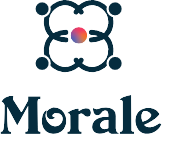
Many of us grow up believing that feeling vulnerable, scared or sad makes us weak.
Ironically, the reality is exactly the opposite. Vulnerability means showing others who we really are. This takes courage because – in a way – it hands control to the other person, giving them the chance to potentially judge or hurt us.
So why would we bother being vulnerable? The truth is that without vulnerability, we can’t form close relationships with others. As a social species, humans often need the support of those around us to live our best and happiest lives.
Vulnerability is the key to connection
Asking for support helps us to connect with others because it shows that we trust them. We often hold back from asking for help, however, because we’re scared of the response. This can cause us to go through life with our guard up and it becomes a self-fulfilling prophecy.
By holding back from showing our feelings, we don’t give others the opportunity to show us that they care. Though risky, showing vulnerability is part of the pathway to feeling supported, loved, fulfilled and seen. It won’t always work out, and sometimes others will let us down – but it is fundamental to grow and deepen our relationships.
Treat yourself as you would others
Next time you’re worried about sharing your feelings, think of how you would respond to someone else who shared the same information with you. Chances are, you’d feel grateful and flattered they’d chosen to talk to you.
We all know the phrase, “treat others like you’d want to be treated.” When it comes to vulnerability, at Morale we like to flip this on its head. By treating ourselves how we’d treat others, we’ll be able to admire the bravery of our vulnerability, rather than criticise ourselves for showing perceived weakness.
The disconnect between the way we see our own vulnerability compared to others is described by Psychologist Anna Bruk as the “the beautiful mess effect”. She explains that “we love seeing raw truth and openness in other people, but we are afraid to let them see it in us … Vulnerability is courage in you and inadequacy in me.”
All too often, we think it’s selfish to talk about ourselves. It’s important to realise that when you’re honest with others, you’re helping them too. By speaking authentically, you give them permission to do the same.
Vulnerability takes practice, and you’ll get it wrong in the process
As with any skill, learning to be vulnerable is a process that will go wrong at times. It feels unnatural for many because they’ve grown up being told to ‘put on a brave face’ and hide negative emotions. To undo these beliefs, we recommend trying out new, positive phrases when discussing your emotions, which may feel unnatural and uncomfortable at first.
As you become more open with others, you could feel that you’ve overshared, or that someone didn’t respond the way you’d expected. But it’s important that you are kind to yourself along the way and don’t give up if certain conversations don’t go as you’d like them to.
Take it one step at a time. Vulnerability doesn’t have to mean a deep in-person chat straight away. It could be as simple as letting a colleague know that you’re struggling with your workload or asking for a lift from a family member when you’re running late.
Hand Up!
At Morale, we want to change the narrative around vulnerability. We’ve been working on ways that we can give our community access to connections and support when needed. That’s why we’ve launched Hand Up – a tool which helps you start asking for help without fear of judgement.

By turning on Hand Up mode, Morale users can send out a notification to their support network, letting them know that they’re feeling low. The feature helps users overcome the stigma of asking for help by giving them the option to send their message anonymously. Recipients will know someone within their network needs a boost and will be able to offer help and support.
We also want Hand Up to facilitate honest and open conversations. That’s why users have the option to identify themselves when they send a notification to their support network. Friends and family can also share their name when they reply – to let the user know that the offer of help is there should they choose to take it. Hand Up makes it easier for people to ask for – and offer – support, without the pressure of a reply.
Through Hand Up, we want Morale users to build stronger connections with their support network and over time feel more comfortable showing vulnerability. In turn, we hope that their courage to be honest with loved ones will have a ripple effect, encouraging them to also be vulnerable. The more people understand that there’s bravery in vulnerability, the more likely it is that we can undo the stigma surrounding it and support each other in the process.
—-
Interested in downloading Morale and feeling more connected to others? The app is available to download on Google Play and Apple’s App Store.
You can also follow us on Instagram, Facebook, Twitter, and LinkedIn for the latest news, updates and features.
Any feedback? We’d love to hear from you – send us an email to contact@moraleapp.co










